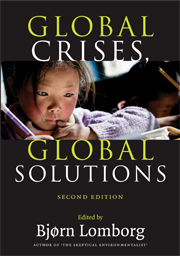Introduction
Published online by Cambridge University Press: 05 June 2012
Summary
This book is about doing what is rational instead of what is fashionable.
It is fashionable to declare that we want to tackle every major world problem. It is also a great thing to say. Unfortunately, it is not rational. We have limited resources. A dollar spent in one place cannot be spent elsewhere. But it is worse than that. When we say that we want to do everything, we are deceiving ourselves. A few big issues get the most air time, attention and money.
During this decade, there has been an incredibly intense focus on terrorism and global warming. Some surveys show these two threats scare people in rich countries more than any other problems that the world faces. Terrorism and global warming have not only dominated some sections of the media, but have attracted billions of dollars and used vast amounts of political capital.
Terrorism and climate change are both serious problems that deserve attention. But, as this book will show, there are many other threats that we hear less about, that also deserve our attention.
The Copenhagen Consensus exercise started as a simple but untested idea of applying economic principles to prioritize global opportunities. In 2004, the process was carried out for the very first time. The result was a prioritized list of opportunities to solve or ameliorate some of the world's greatest problems, compiled by some of the world's top economists.
- Type
- Chapter
- Information
- Global Crises, Global SolutionsCosts and Benefits, pp. 1 - 4Publisher: Cambridge University PressPrint publication year: 2009

